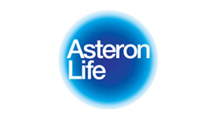In general, life insurance firms require an accurate assessment of habits and activities that could possibly affect your longevity. You should take note that most life insurance policies require disclosure about tobacco or nicotine intake. Logically, being a smoker would pose a significant impact to the type and cost of life insurance cover you would be provided.
Needless to say, smokers tend to pay much higher life insurance premiums compared to non-smokers. This is because mortality rate for smokers is practically higher compared to non-smokers. Life insurers intend to compensate for possible risks of extending a smoker’s policy due to the likelihood that the individual would get ill or die from smoking-related causes.
However, be reminded that some life insurance providers could take a different method of assessment for smokers. Some firms may focus on the amount of nicotine or tobacco consumed. There could be specific classifications of smokers to differentiate habitual and heavy smokers from light or occasional smokers.
It is common for a life insurer to categorize as an occasional or celebratory smoker an individual who smokes just about 12 cigars annually. A heavy or habitual smoker is an individual who consumes tens of cigars per day. You could be categorized as a non-smoker if you have not smoked for at least 12 months.
If that is the case, would it be fine to just declare a white lie about your smoking habit? There is no sense in lying about the fact. The required medical examination that comes with application processing would surely reveal any presence of nicotine in your urine, blood, or system. You would still get a smoker’s premium rate if you are proven to have nicotine in your system despite your dishonesty in declaration.
It is not advisable to lie about your smoking habit. Even if you have managed to yield a nicotine-negative result in medical exams, any possibility of the company finding out about your smoking history would just jeopardize your life insurance coverage, putting your beneficiaries in a potentially unlikely situation if the inevitable occurrences take place.
















